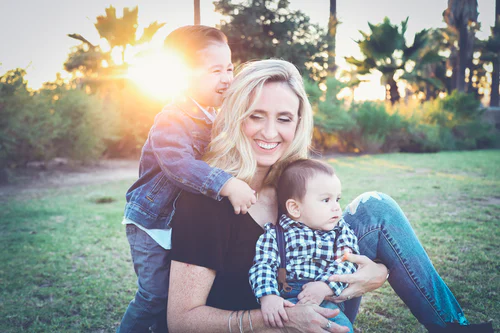
The latest figures from the Office for National Statistics (ONS) for Births in England and Wales 2021 show that more babies have been born to mums who are not married or in a civil partnership than mums who are – for the first time since records began in 1845.
Of the 624,828 live births registered in 2021, 320,713, equating to 51.3%, were unmarried and not in a civil partnership.
Some of the reasons behind the statistics include older married women deciding not to have children at all, and a marked increase in parents simply being disinterested in formalising their relationship.
Solicitor Deborah Cahill from The Family Law Company says “Not so many decades ago, giving birth out of wedlock was seen by some parts of society as untenable. Shocking stories of babies being taken from unmarried mothers abound. This is fortunately in the past, and no-one now believes you have to be married to have children.
“However, there are some myths that continue about the status of unmarried parents – the main one being that there is such a thing as a common law marriage that gives people living together some sort of legal status and rights. Sadly this is untrue. Cohabiting for any length of time doesn’t give them the same legal status as being married or in a civil partnership.”
While there are some provisions for cohabitees with regard to pensions or a share of the estate should a partner die, there is no legal recognition of the relationship. Should they separate, a partner often has no legal right to make a claim against their previous partner. Unlike in a divorce or civil partnership dissolution, there is no requirement for a fair settlement between the parties.
Deborah explains having children with a partner can create obligations with regard to the children, such as a claim for child support and the possibility of an application for financial provision just for the child. But, she says, only a marriage or civil partnership provides the right to apply for spousal maintenance and a claim over assets owned by a spouse or civil partner, such as the family home and pensions, in the event of separation.
“It’s incredibly unfair particularly when a mum – and it is still most often the mum – has taken time off work to care for the children while the other parent forges ahead with their career. The ‘stay at home’ parent isn’t earning so they can’t go on the mortgage, so the house and often other assets are in the sole name of the working parent. It may be possible to make a claim against the homeowner for a share of the property if the non-owner contributed to the purchase or development of the house, but these claims are often difficult and expensive to make.”
A parent who doesn’t own the home but has the care of the children may be able to argue that the other parent should provide a house to mee the needs of their children. However, money used to buy such a house may have to be paid back when the children leave education.
Deborah adds that it’s important to realise that those in a same sex or any LGBTQI relationship with children may have even greater difficulties obtaining financial assistance from previous partners. “Unless you are married or in a civil partnership, if you are the only parent with parental responsibility you have no legal protection with regard to contributions to the child’s upbringing. To ensure you do, both of you must be registered as parents on the child’s birth certificate.”
Although the law now recognises the existence of unmarried parents and grants them equal rights in relation to their children, it does not provide those parents with the same rights to apply for fair financial provisions upon the breakdown of their relationships.
“Unmarried parents are here to stay and it will need a change in legislation to address their financial situation – which is not a prospect in the short term.
“So while there is no moral objection to having children out of wedlock, legally, if you are set against marriage or a civil partnership, there is a good reason to look at putting a cohabitation agreement in place. This at least offers some protection should your relationship fail.”
Need some advice? Get in touch today
"*" indicates required fields
The information submitted here is used and stored for the purpose of replying to the enquiry. For more information on how we process data please visit our Privacy Policy.











